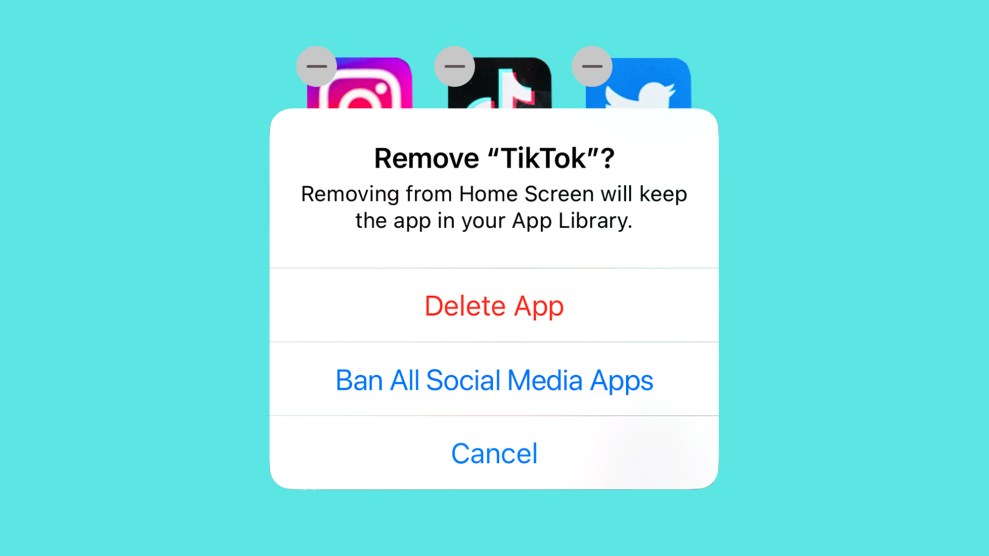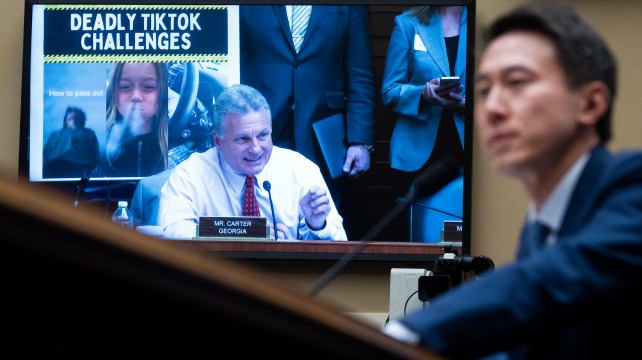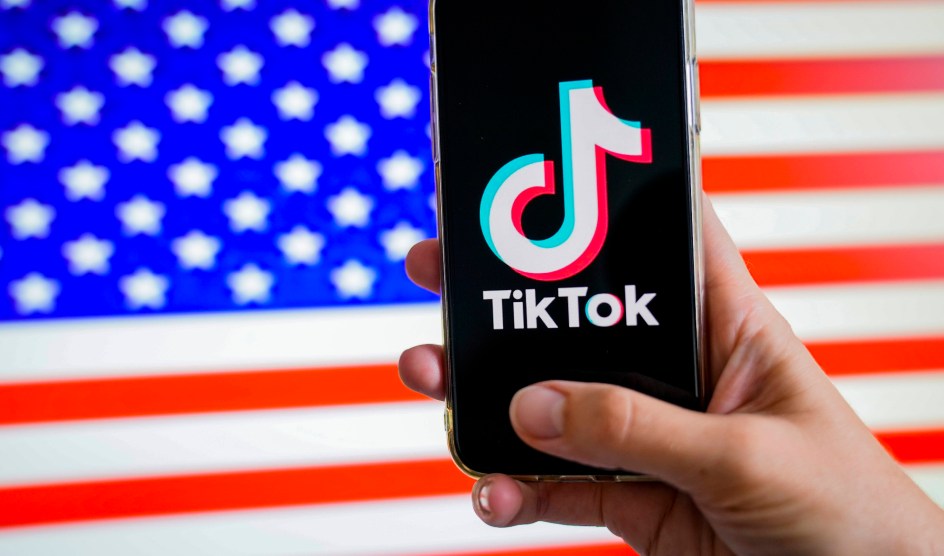
Mother Jones; Unsplash
What if the United States government banned every single social media app? Not just TikTok. All of them. Facebook, Tumblr, Twitter–sayonara. It may sound ludicrous, but if you apply the logic behind the kinds of questions posed at Thursday’s House Energy and Commerce Committee hearing on the data security risks and alleged harm to children posed by TikTok, that’s what the members inadvertently proposed.
During the hearing, Rep. Buddy Carter (R-Ga.) called out TikTok CEO Shou Zi Chew for spreading dangerous viral trends—like the blackout challenge, which shows kids how to intentionally pass out. Rep. Gus Billarakis (R-Fla.) lamented TikTok serving users videos sympathetic to suicide. Rep. Brett Guthrie (R-Ky.) criticized illicit drug sales on the platform. Rep. Kim Schrier (D-Wash.) challenged the company for being addictive.
Carter, Billarakis, Guthrie, and others all essentially asked the same thing: What if we lived in a world where there was no algorithmic amplification of harmful content? That’s basically the same as asking: What if we lived in a world where there was no such thing as social media?
To be clear, encouraging self-harm, facilitating illegal drug sales, and deploying addictive design are bad, but they’re also not unique to TikTok. Every other social media platform has been a vector, to varying degrees, for such harms. Snapchat has become a vital tool for some drug dealers. Tumblr was infamously home to pro-eating disorder content. More bad things have happened on Facebook and YouTube than anyone could reasonably count. While it stands to reason TikTok’s powerful algorithm, which is uniquely good at widely distributing content, is probably better at distributing problematic, that isn’t desirable at any scale.
Alas, social media companies in their current form probably can’t exist without producing this kind of deleterious runoff. They’ve tried to get rid of the worst of it for years; they know that the PR risk of drug dealing and social security numbers theft is not worth the profit boost that minuscule subset of users brings. The same goes for content that directly encourages eating disorders or other self-harm. The platforms have failed to resolve these problems, even with literal armies of moderators across the world, both because of how they’ve been designed (pursuing exponential growth means everything gets bigger on your platform, even the bad things) and because of conditions beyond their control that generate such behavior.

Even by the standards of the hearing’s other stated purpose—national security risks—TikTok isn’t exactly unique. Chinese companies probably do actually have a cozier relationship with the Chinese government than American ones do, which isn’t good and raises risks to users privacy and data. But regardless, governments outside authoritarian systems can easily get app or smartphone user data from commercial brokers more than willing to sell it. The FBI has purchased location data to conduct warrantless surveillance. (Of course, nothing is stoping the same data brokers from selling to Chinese intelligence or law enforcement agencies.)
And TikTok isn’t even the only social media company under the influence of non-U.S interests with well earned reputations for spying. Saudi Arabian Prince Alwaleed Bin Talal owns just 4 percent of Twitter, but is still the second largest investor in the company whose platform is the closest thing to a central digital gathering place for journalists, dissidents, activists, and academics. This week, Bloomberg reported that there is “anxiety” among US national security and intelligence that Saudi investors, and other foreign owners from China and Qatar, have already gained access to the company’s user data.
So what actually took place on Capitol Hill yesterday? Some people might call singling out TikTok, rather than pursuing comprehensive privacy and social media reform, a sublimated expression of jingoism and sinophobia, borne from vague anxieties about the US’s dwindling global hegemony. Or maybe it’s sublimated expression of something else: that we might prefer a world without social media.









